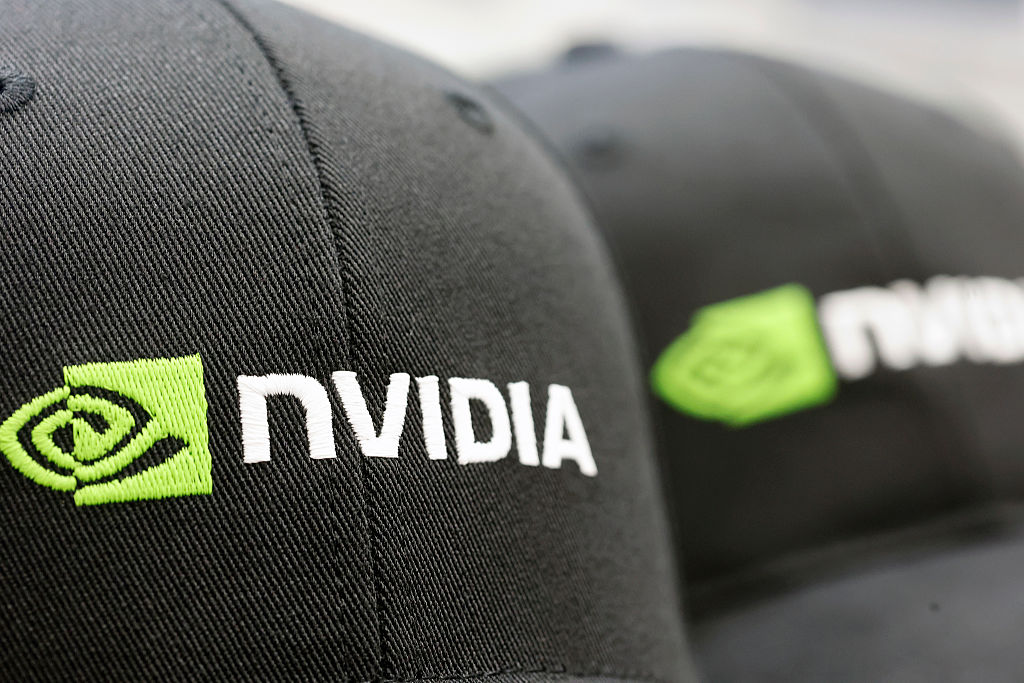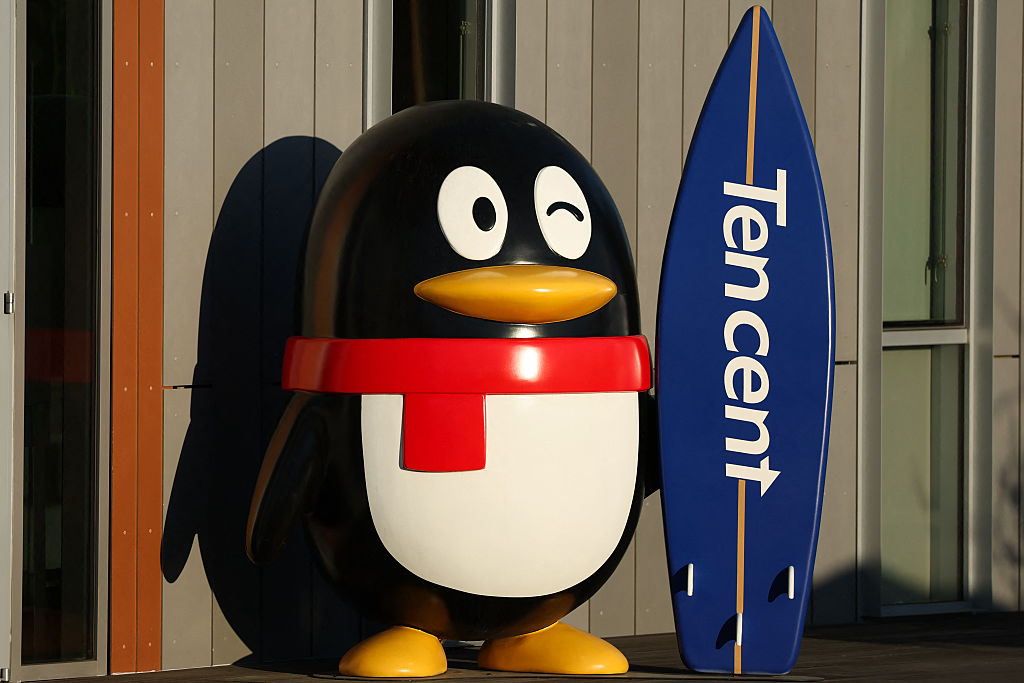Nvidia becomes world's first $4 trillion company
The AI boom has catapulted Nvidia’s share price to astronomic heights, becoming the world’s most valuable company and the first to pass the $4 trillion milestone


Get the latest financial news, insights and expert analysis from our award-winning MoneyWeek team, to help you understand what really matters when it comes to your finances.
You are now subscribed
Your newsletter sign-up was successful
Want to add more newsletters?

Twice daily
MoneyWeek
Get the latest financial news, insights and expert analysis from our award-winning MoneyWeek team, to help you understand what really matters when it comes to your finances.

Four times a week
Look After My Bills
Sign up to our free money-saving newsletter, filled with the latest news and expert advice to help you find the best tips and deals for managing your bills. Start saving today!
Nvidia stock gained as much as 2.8% on Wednesday (9 July), making it the first company in history to pass $4 trillion in market capitalisation (market cap).
Despite enduring a torrent of headwinds this year, Nvidia’s (NASDAQ:NVDA) share price has continued its seemingly inexorable rise. It has been one of the most popular stocks with investors ever since it became closely associated with the AI boom, and with Nvidia stock continuing to outperform investors are being rewarded for their faith in the chipmaking giant.
Since the start of the year, Nvidia shares have gained 21.1%. Over the past 12 months, the stock is up 23.8%.
MoneyWeek
Subscribe to MoneyWeek today and get your first six magazine issues absolutely FREE

Sign up to Money Morning
Don't miss the latest investment and personal finances news, market analysis, plus money-saving tips with our free twice-daily newsletter
Don't miss the latest investment and personal finances news, market analysis, plus money-saving tips with our free twice-daily newsletter
“This is a historical moment for Nvidia, the tech space flexing its muscles,” said Dan Ives, head of global technology research at Wedbush Securities. He added that Nvidia hitting the $4 trillion milestone “speaks to the AI Revolution hitting its next stage of growth led by the one chip fueling AI: Nvidia.”
Nvidia’s meteoric ascendancy took off with the launch of ChatGPT in late 2022. Since then Nvidia shares have increased in value by nearly ten times, propelling it from a sizeable but relatively little-known stock to the most valuable company in the world.
“Once known for powering video games, Nvidia has transformed into a foundational player in AI infrastructure,” said Matt Britzman, senior equity analyst at Hargreaves Lansdown.
What AI means for Nvidia stock
Nvidia has had a near monopoly on the advanced computer chips that build the data centres where AI models, like ChatGPT, are developed and trained.
There has been a wave of investment into these centres ever since ChatGPT sprung to public attention. The rest of the Magnificent Seven in particular are continually ramping up their capital expenditure (capex) projections as they bid to outcompete one another for dominance of AI.
Meta (NASDAQ:META) raised its capex projection for 2025 to as high as $72 billion in its latest earnings release. Microsoft (NASDAQ:MSFT), the world’s second-most valuable company, looks set to spend $80 billion. Wedbush estimates that $2 trillion will be invested into AI initiatives over the next three years.
Between its 2023 fiscal year (which ended just after ChatGPT’s launch, in January 2023) and its 2025 fiscal year (which ended in January 2025), Nvidia’s adjusted annual net income soared from $8.4 billion to $74.3 billion.
Its chips are “the only game in town… the new gold and oil,” according to Ives.
Can Nvidia keep growing?
Nvidia’s share price gains are predicated on its continual earnings gains, which in turn relies on its near monopoly on cutting-edge AI chips.
So there are potential threats to its growth. A significant competitor in the AI chip market could dent Nvidia’s pricing power, forcing it to cut its margins in order to maintain its market share.
To some extent, that is inevitable. Even Ives, one of the world’s most outspoken Nvidia bulls, concedes that rival Advanced Micro Devices (NASDAQ:AMD) is “joining the party soon”.
“Growth is expected to slow, and it’s likely to lose some market share as competition and custom solutions ramp up,” said Britzman. He also highlighted, though, that “while it might seem strange for a company that’s just passed the $4 trillion mark, Nvidia still looks attractive.”
Nvidia shares trade at around 32 times earnings, which is fairly modest for a big tech stock. Revenue is expected to grow by around 50% this year, indicating that while its growth might be slowing, there is still room for further expansion ahead.
A slowdown in AI spend would be a concern for Nvidia, but at the time of writing, there doesn’t seem to be any indication that could happen soon.
Get the latest financial news, insights and expert analysis from our award-winning MoneyWeek team, to help you understand what really matters when it comes to your finances.

Dan is a financial journalist who, prior to joining MoneyWeek, spent five years writing for OPTO, an investment magazine focused on growth and technology stocks, ETFs and thematic investing.
Before becoming a writer, Dan spent six years working in talent acquisition in the tech sector, including for credit scoring start-up ClearScore where he first developed an interest in personal finance.
Dan studied Social Anthropology and Management at Sidney Sussex College and the Judge Business School, Cambridge University. Outside finance, he also enjoys travel writing, and has edited two published travel books.
-
 Should you buy an active ETF?
Should you buy an active ETF?ETFs are often mischaracterised as passive products, but they can be a convenient way to add active management to your portfolio
-
 Power up your pension before 5 April – easy ways to save before the tax year end
Power up your pension before 5 April – easy ways to save before the tax year endWith the end of the tax year looming, pension savers currently have a window to review and maximise what’s going into their retirement funds – we look at how
-
 Three key winners from the AI boom and beyond
Three key winners from the AI boom and beyondJames Harries of the Trojan Global Income Fund picks three promising stocks that transcend the hype of the AI boom
-
 'AI is the real deal – it will change our world in more ways than we can imagine'
'AI is the real deal – it will change our world in more ways than we can imagine'Interview Rob Arnott of Research Affiliates talks to Andrew Van Sickle about the AI bubble, the impact of tariffs on inflation and the outlook for gold and China
-
 Three promising emerging-market stocks to diversify your portfolio
Three promising emerging-market stocks to diversify your portfolioOpinion Omar Negyal, portfolio manager, JPMorgan Global Emerging Markets Income Trust, highlights three emerging-market stocks where he’d put his money
-
 Coreweave is on borrowed time
Coreweave is on borrowed timeAI infrastructure firm Coreweave is heading for trouble and is absurdly pricey, says Matthew Partridge
-
 An AI bust could hit private credit – could it cause a financial crisis?
An AI bust could hit private credit – could it cause a financial crisis?Opinion Private credit is playing a key role in funding data centres. It may be the first to take the hit if the AI boom ends, says Cris Sholto Heaton
-
 Why Trustpilot is a stock to watch for exposure to the e-commerce market
Why Trustpilot is a stock to watch for exposure to the e-commerce marketTrustpilot has built a defensible position in one of the most critical areas of the internet: the infrastructure of trust, says Jamie Ward
-
 ChatGPT turns three: what’s next for the ‘AI era’?
ChatGPT turns three: what’s next for the ‘AI era’?Three years after its launch kickstarted the age of AI, ChatGPT and its maker OpenAI are driving the stock market. But concerns are growing over whether OpenAI will be able to turn its AI dominance into profit.
-
 Big Short investor Michael Burry closes hedge fund Scion Capital
Big Short investor Michael Burry closes hedge fund Scion CapitalProfile Michael Burry rightly bet against the US mortgage market before the 2008 crisis. Now he is worried about the AI boom